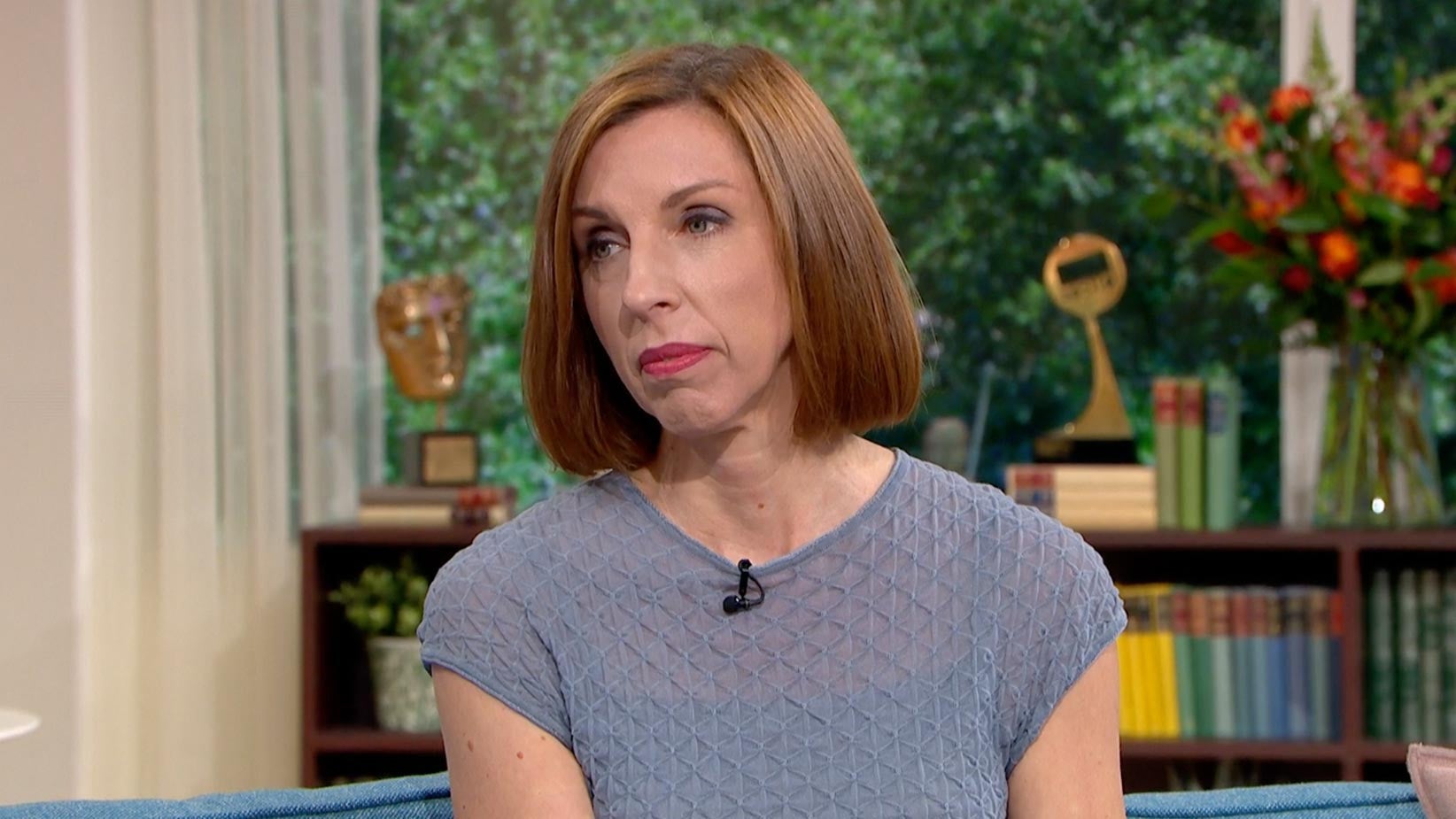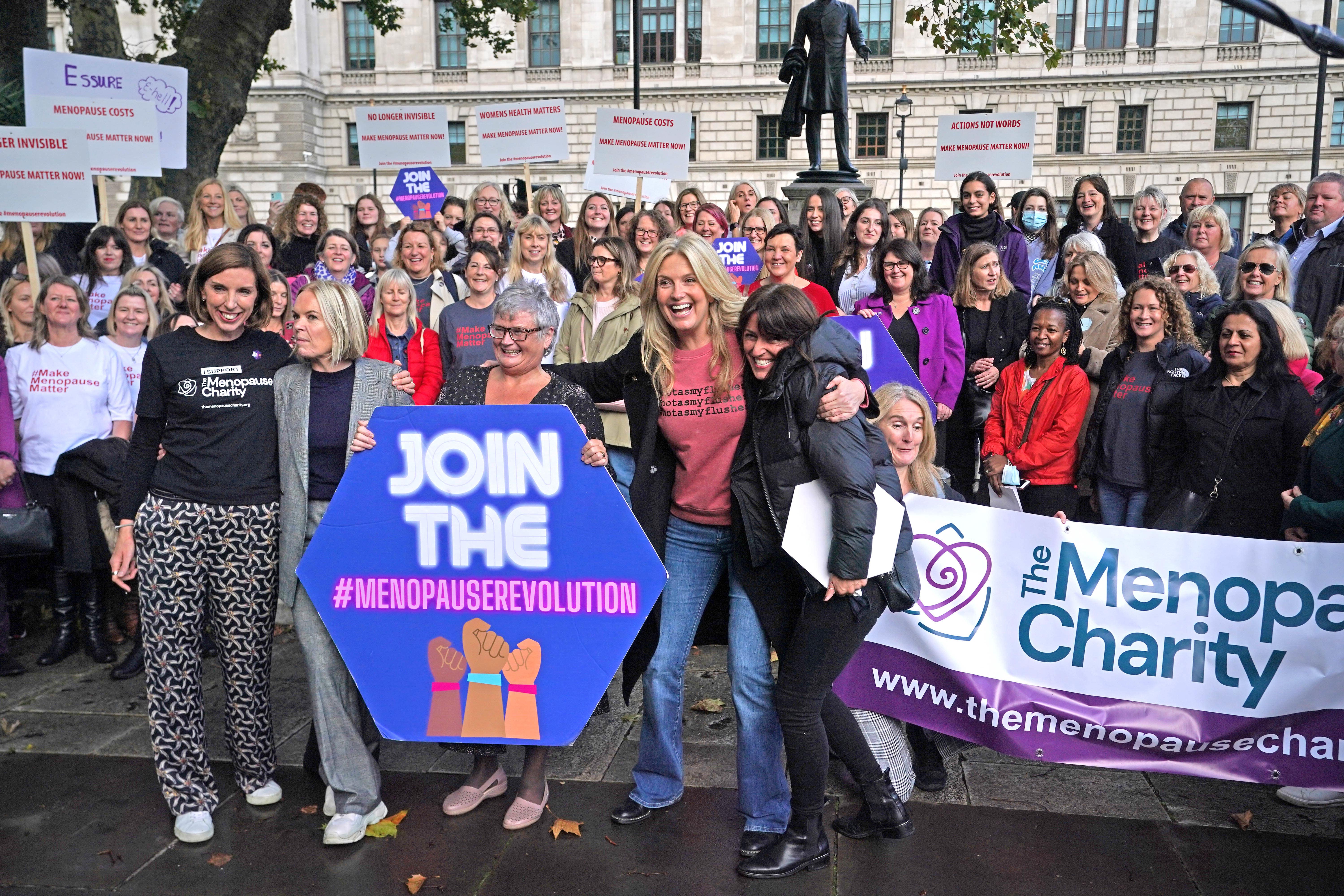The Independent's journalism is supported by our readers. When you purchase through links on our site, we may earn commission.
There is a scandal about HRT – but it’s not the one Panorama thinks it is
Midlife author and podcaster Lorraine Candy is a patient of Dr Louise Newson, who was the focus of a controversial Panorama documentary. Having spent a week dealing with the fallout from the programme, she says it’s a shame that a much bigger story about the menopause has been missed

The moment I saw the Panorama documentary The Menopause Industry Uncovered being advertised, I suspected that it wasn’t going to be helpful. After spending almost five years immersed in the world of midlife women as an author and podcaster, I felt a familiar sense of dread; anything involving this life stage and our hormones always makes for the most misunderstood of news headlines. And I was right.
The BBC documentary claimed it would focus on the commercialisation of menopause care, but instead headed down a disappointing path discrediting Dr Louise Newson, a private medic whom I consider one of the most pioneering practitioners in women’s health and menopause treatment today. Watching the fallout from the ensuing debate has ignited further fury.
After the programme aired, I spent most of the following day on a private Facebook group that accompanies the podcast Postcards from Midlife, which I co-host, putting out fires of confusion around hormone replacement therapy provoked by what I can only surmise as headline-grabbing scaremongering by the filmmakers. It felt like all the recent years of progress made around HRT and the taboos about menopause had evaporated overnight.
Just when we thought that a generation of midlife women who’ve been gaslit, patronised, fobbed off, dismissed and underserved by the medical profession were being listened to and finally treated properly, suddenly we were back in that all-too-familiar territory of fear, panic and disinformation.
I know many women’s lives have been altered for the better by Dr Newson, mine included. HRT, prescribed by Dr Newson after two failed visits to my GP, saved my sanity after my perimenopausal symptoms had me questioning whether I had a brain tumour and saw me suffering severe night terrors, depression, and unexplained debilitating panic attacks.
What a shame, then, that this programme decided to focus on one private specialist who sees only a fraction of the women suffering with dire perimenopausal and menopause symptoms, instead of the bigger scandal of sick women being all but abandoned by the NHS.
The head of the British Menopause Society (BMS) went on Woman’s Hour after Panorama had aired to say that we need to investigate how HRT is prescribed. The NHS has had plenty of time to do this already – it has just chosen not to – and this, surely, is the crux of the matter. For too long, the NHS hasn’t appeared to care about women or seriously listen to their concerns.
I don’t say this lightly: I say this in the context of a patriarchal system that has, at its core, a shocking and scandalous disregard for women’s health. The system is designed to deliver healthcare biased towards keeping men, not women, alive; we know this because studies show that women are chronically underrepresented in clinical trials relating to the major diseases that kill them.

Let’s start with heart disease, for example – the No 1 killer of women in the UK. Last month, a new Manchester University report found that the bias in treating this as a “men’s disease” is “killing thousands of women” (by the way, HRT is a protective medicine when it comes to heart disease). The British Heart Foundation says 8,200 women have died needlessly of a heart attack because they didn’t get the same treatment as men.
It gets worse: earlier this year, new research into endometriosis (which affects 1.5 million UK women) found that sufferers were being “left in excruciating pain” by GPs. In July, the NHS’s own patient safety tsar found the health service guilty of “fobbing off, gaslighting, dismissing and patronising” female patients who raised concerns about their treatment.
The point I am making is that women’s voices are routinely ignored in our national healthcare system. Culturally, the NHS doesn’t place a high value on supporting women through anything related to their reproductive health, including symptoms of menopause.
And it starts from day one. Last year, a damning report from an NHS watchdog showed that almost two-thirds of maternity units provide dangerously substandard care that puts women and babies at risk. The Care Quality Commission (CQC) has rated 65 per cent of maternity services in England as either “inadequate” or “requires improvement” on the safety of care they offer – up from 54 per cent the year before.

I think it is part of a sexist narrative that we should resist over-medicalising what the health system sees as “natural” stages of our lives – the assumption being that we should endure the pain that comes with them. Even when older women are at higher risk of heart disease, osteoporosis and possibly dementia due to the decline in hormones during midlife, there is a shocking lack of research into HRT doses – shocking, that is, but predictable, in a health context that prioritises men. As an example, five times more research goes into erectile dysfunction, which affects about a fifth of men, than into premenstrual syndrome, which affects 90 per cent of women.
Fifteen women spoke to Panorama about complications they had experienced after being patients of Newson Health, but the fact that Dr Newson’s clinic has to exist at all is where the real focus should be.
Many of our listeners tell us they often go private when their NHS GP has mistakenly sent them off with a prescription for antidepressants, which is what I was offered twice after a GP told me I was too young to be perimenopausal in my mid-forties (this is factually inaccurate, as perimenopause, which is when symptoms caused by hormonal fluctuations occur, can start as early as 40). One woman told us her GP had said she should take up needlework to calm herself down.
Just a few years ago, as reported in The Independent, women going through menopause were being wrongly prescribed antidepressants, which can make their symptoms worse and destroy their confidence. The What Women Want at Menopause survey of 1,101 women in the UK aged between 42 and 55 found that women are more and more hesitant to approach their doctor, because of concerns that they will not get appropriate support.
I don’t say this lightly: I say this in the context of a patriarchal system that has at its core a shocking and scandalous disregard for women’s health
Over a third of those who had gone to their GP with menopause symptoms had been offered antidepressants, and 80 per cent of those women said they felt antidepressants were an “inappropriate” treatment for the symptoms they were suffering.
So you can see why I am furious about the response of the BMS to the debate. We know from our listeners and members of our private Facebook group that midlife women are stepping out of jobs, leaving families, divorcing husbands and even contemplating suicide amid the overwhelming confusion and extreme stress of perimenopause.
Of course, not all women suffer symptoms, and HRT isn’t a magic bullet, and even if it were, some women are not able to take it. Yes, there may also be poor prescribing practices among both private and NHS GPs, and we know lifestyle changes can help relieve symptoms (we’re not morons). I also know that antidepressants may be helpful for some women, but the British Medical Journal has this year called for a curb on prescribing them instead of HRT – the latter being what the NHS guidelines now recommend as the first line of treatment.
What the BMS should be really angry about is the true scandal of keeping an army of women in a zombie state post-40 with antidepressants – if that’s not medicalising menopause, I don’t know what is. But I do know that many desperate perimenopausal and menopausal women are caught in the crossfire over an issue that is ultimately about the persistent lack of attention to women’s healthcare.

So what can you do if the programme has terrified you about HRT? Well, firstly, don’t stop taking what you’ve been prescribed, talk to your doctor, and if you want a second opinion, you are entitled to ask for one.
I always recommend that people take a friend with them to a consultation if possible, so they are not dismissed or patronised. Do your research; buy the books. I highly recommend NHS GP Dr Nighat Arif’s book, The Knowledge: Your Guide to Female Health from Menstruation to the Menopause. There should be two experts in the room when you go to the doctor: you and your GP. There are, of course, many GPs who do listen to women and are up to date on modern menopause care; just not enough to make a difference right now.
Now you know how woefully underserved women are, you have to press harder for the treatment you may need and deserve. Unfortunately, this is something women are used to having to do in most areas of life. Just a shame that this time it could be a matter of life and death.
Lorraine Candy is the author of ‘What’s Wrong with Me? From Unravelling to Reinvention: A Midlife Memoir’. You can listen to ‘Postcards from Midlife’ here






Join our commenting forum
Join thought-provoking conversations, follow other Independent readers and see their replies
Comments